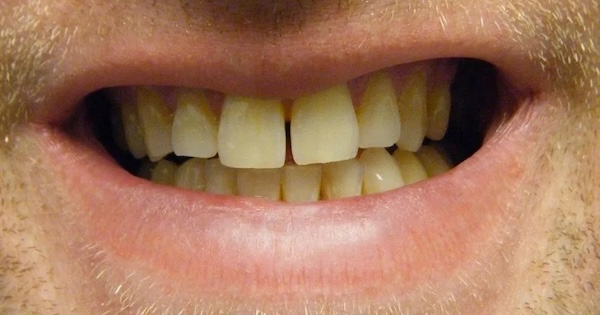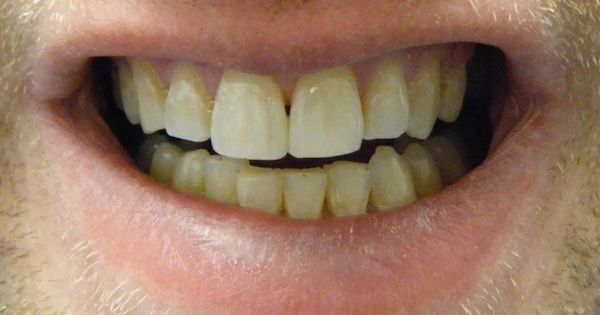What is dental bonding?
Dental bonding has been around since the 80s at least. It's a combination of either using micro mechanical bonding, imagine interlocking fingers or Velcro, or chemical bonding like glue to get the dental materials to stick to the teeth.
When is dental bonding recommended?
Anytime you're not using a gold or silver filling, you're doing dental bonding. So all tooth colored fillings, all veneers, all restorations, porcelain restorations are bonded nowadays.
What are the advantages of bonding?
If the tooth is smaller or shorter, you want something to stick to the tooth without locking it into the tooth like the old silver fillings used to be, all those would be indications for dental bonding.
Do bonded teeth look natural?
Yes, most of the stars in Hollywood have veneers or bonded teeth. Most people walking around, you don't know they have crowns or fillings in their mouth, it's all bonding.
What's better, bonding or veneers?
When people say bonding, what they really mean is having a tooth colored filling stuck to your tooth in the front to make it look more cosmetic. I don't really recommend that. There are better options nowadays. We have veneers, which are porcelain. Those are a great option. We have printed resin, which is a way to make the filling outside the mouth and then stick it to the tooth. Those would be much better options, in my opinion, than sticking filling to the tooth. A lot of times if you stick filling to the tooth, it kind of looks like you're sticking filling to the tooth. If you're younger and you chip a tooth, I always recommend trying the bonding first. It's the most conservative, least costly option, but in the long run, you'd be much better off with a porcelain product like a veneer or a crown.
What takes place during the bonding procedure?
During the bonding procedure, we're going to prepare the tooth and we're going to prepare the restorative material for the bonding. There are different agents and chemical treatments we do to each, and then they're stuck together by cement or adhesive and typically cured with a light. Sometimes it's time set, but something's either mixed or set with a light.
Is dental bonding painful?
No. If you're doing it on the outer surface of the tooth in enamel, you're not going to feel it at all. The outer surface of the tooth is like a fingernail. You can cut it without having any pain or discomfort. The inner part of the tooth, if you drill in it or rinse it, it's going to be sensitive. So typically during dental procedures, you have local anesthetic on board. So it's not something that's going to hurt. It's routine dentistry. All dentistry nowadays is bonding.
Can I brush and floss my teeth after bonding?
Yes. I definitely would always recommend brushing and flossing your teeth, whatever you have in your mouth, crowns, fillings. It's all going to last longer if you brush and floss.
Are there special instructions for taking care of bonded teeth?
No. Brush, floss, all the regular stuff. They're just like natural teeth.
How long does bonding last?
It's a good question. You see a lot of variance on this. The average half-life in the United States is about two to three years, which is why most insurance companies pay to replace it every couple of years. But if you're taking care of it well, I'd like to see you get much longer out of that. I recommend with good home care and good maintenance, you should be able to get three times longer than that at least. So six to 10 years out of a filling, maybe longer. It all depends on your home care, how frequently you're coming in for maintenance and your diet. Also, if you have a night guard, if you grind your teeth, most people do, you're going to want a guard to help protect you from those forces. So if you're doing all the right stuff, it lasts a lot longer. Like anything else, the better you take care of it, the longer it lasts.
How much does dental bonding cost?
It depends on what you're bonding. So filling, a couple hundred dollars, a crown, over $1,000 typically. What percentage your insurance cover is going to depend on your carrier, 50 to 80% is pretty common, but it depends on the patient and the procedure. We always go over all the costs with you prior to doing any treatment, so you're always going to be informed about the cost of the procedure prior to starting at my office.
Does insurance cover bonding?
Yes, absolutely. Fillings and crowns are typically covered by insurance. Cosmetic work and veneers are typically not, but whatever treatment we do at my office, you're always going to get an estimate prior to starting the procedure.
When should I make an appointment for dental bonding?
You should make an appointment with your dental provider on a routine basis and additionally whenever you feel like you have any treatment needs. I always recommend discussing them with the provider at my office. I'm looking more for the health of the teeth. I usually ask if you have any cosmetic concerns, but I don't talk about bonding or veneers or Invisalign to every single one of my patients. So if you're interested in a cosmetic option, please let us know. You'll always know if your teeth are healthy at my office. I'll always ask you if you have any cosmetic concerns, but please do bring it up if you do have a cosmetic interest in any of the procedures that we offer at the office.
Before & After:
Our patient wanted to close the gaps without orthodontics, in a single visit, and this young sailor was changing duty stations soon, so time was a concern. Due to his young age, and timeline, and desire for a fully reversible procedure that did not involve tooth preparation, he felt direct bonding was the best option for him. With recent advancements in 3d printing, we can offer indirect bonding as a fully reversible procedure that’s even stronger and longer lasting than direct bonding. Dr Dulac is in the 15% of dentist nationally that are doing this type of work currently (2023).


This young sailor wanted to fix her chipped teeth. Due to her young age, and desire for a fully reversible procedure that did not involve tooth preparation, she felt direct bonding was the best option. With recent advancements in 3d printing, we can offer indirect bonding as a fully reversible procedure that’s even stronger and longer lasting than direct bonding. Dr Dulac is in the 15% of dentist nationally that are doing this type of work currently (2023).



